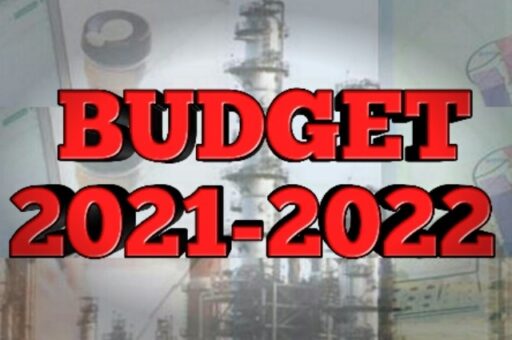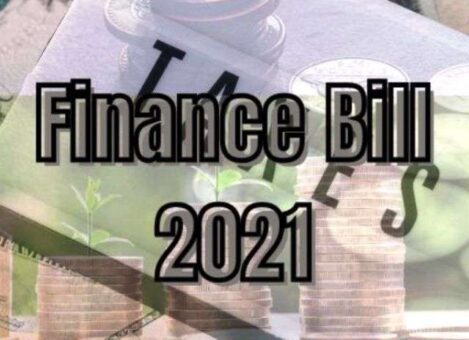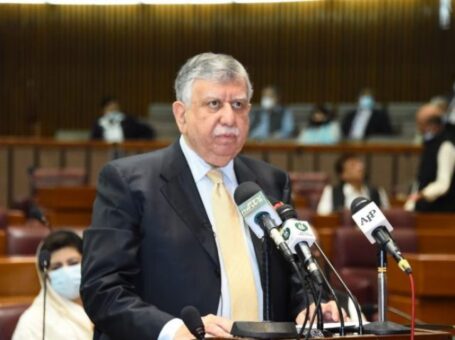Finance Minister Shaukat Tarin announced on Tuesday that the government is set to launch Universal Self-Assessment, a third-party approach, for auditing 15 million potential taxpayers.
(more…)Tag: budget 2021-2022
-

National Assembly approves budget, finance bill 2021
ISLAMABAD: The National Assembly on Tuesday approved federal budget 2021-2022 and Finance Bill 2021.
After over a two-week long debate, the National Assembly on Tuesday passed the federal budget with a total outlay of Rs 8.487 trillion, with around 19 percent additional allocations as compared to last year’s Rs 7.137 trillion.
The Finance Bill 2021-22 was moved before the parliament by Finance Minister, Shaukat Tarin, which was passed with majority vote.
Some amendments in the bill proposed by the Members of National Assembly were accommodated by the house, whereas some others were rejected.
-

National Assembly may pass Finance Bill 2021 on June 29
ISLAMABAD: The National Assembly will meet on Tuesday June 29, 2021 in which Shaukat Fayaz Ahmed Tarin, Minister for Finance and Revenue to move the Finance Bill 2021 with certain amendments for approval from the house.
A notification issued by the National Assembly Secretariat stated that the assembly will meet on Tuesday June 29, 2021 at 11:30AM.
Finance Minister Shaukat Tarin to move that a bill to give effect to the financial proposals of the federal government for the year beginning on the first day of July 2021 and to amend certain laws [The Finance Bill, 2021], be taken into consideration at once.
“Further, the finance minister to move that a bill to give effect to the financial proposals of the federal government for the year beginning on the first day of July, 2021 and to amend certain laws [The Finance Bill, 2021], be passed,” according to the notification.
-

Tax amendments made for income of salaried persons, individuals
KARACHI: The Finance Bill, 2021 has proposed certain amendments in Income Tax Ordinance, 2001 related to income of salaried persons and business individuals.
According to a presentation made at post budget 2021/2022 webinar of Karachi Tax Bar Association (KTBA) the major changes proposed through the Finance Bill 2021, are:
— Interest income above Rs5 million taxable at normal rates (previously Rs. 36 million); withholding @15 percent (previously 10 percent) for interest income below Rs. 500,000.
— Exemption for medical allowance / reimbursement withdrawn, which needs to be reconsidered.
— Interest income distributed by Provident Fund above Rs. 500,000 taxed @ 10 percent – conflict with 6th Schedule needs to be addressed.
— Rental income taxable at normal rate.
— No tax on transfer of assets via gift / inheritance etc. to non-resident relatives.
— Giftee allowed to claim FMV of gifted assets, after a holding period of 2 years.
— Individuals have been made a withholding agent for payment of commission (having turnover of Rs. 100 million).
-

Final tax regime allowed for export of services
KARACHI: The Finance Bill 2021 has proposed a final tax regime for export of IT and IT enabled services.
According to commentary on budget 2021/2022 released by KPMG Taseer Hadi & Co. currently, tax deduction on foreign proceeds from export of goods are taxed at 1 percent which is considered as final tax.
The Finance Bill proposes similar taxation regime for following specified services:
—Export of IT and IT enabled services where tax credit under section 65F is not available;
—Services or technical services rendered outside Pakistan or exported from Pakistan;
—royalty, commission or fees derived by a resident company from a foreign enterprise in consideration for the use outside Pakistan of any patent, invention, model, design, secret process or formula or similar property right, or information concerning industrial, commercial or scientific knowledge, experience or skill made available or provided to such enterprise;
—construction contracts executed outside Pakistan; and
—other services rendered outside Pakistan as notified by the Board from time to time.
The tax deductible will be final tax subject to following conditions:
(i) Income tax return has been filed;
(ii) withholding tax statements for the relevant tax year have been filed;
(iii) sales tax returns under Federal or Provincial laws have been filed, if required under the law; and
(iv) no credit for foreign taxes paid shall be allowed.
The Bill also proposes an option for taxation under Normal Tax Regime which is to be exercised every year at the time of filing of income tax return.
The Bill proposes while explaining the nature and source of any amount, investment, money, valuable article, expenditure, referred to in section 111, a taxpayer takes into account any source of income under this section, he shall not be entitled to take credit of a sum that can be reasonably attributed to the business activity under this section.
-

Finance Bill 2021: tax treatment of capital gain on disposal of immovable properties
KARACHI: The Finance Bill 2021 has proposed various changes to Income Tax Ordinance, 2021 to capital gain tax on disposal of immovable properties.
In its commentary on budget 2021/2022, KPMG Taseer Hadi & Co. Chartered Accountants said that taxation of gain on disposal Gain on disposal of immovable property is currently taxable on separately provided slab rates by computing the such gain on the basis of holding period as envisaged under sub-sections (1A) read with (3A) of section 37.
The Finance Bill 2021 proposes to provide for taxability of gain on disposal of immovable property where such gain exceeds Rs. 5 million as normal capital gain subject to tax under applicable tax rates provided under normal slab rates or corporate tax rates.
However, benefit of holding period shall still be taken into account while computing the taxable capital gain.
Amendment has also been proposed to tax this gain at 5 percent instead of existing slab rates varying from 2.5 percent to 10 percent. Thus, the gain below Rs. 5 million computed by taking benefit of holding period shall be subject to tax @ 5 percent.
The Finance Bill also proposes to insert explanation in sub-section (1A) of section 37 that where a person purchases and sells immovable property in the ordinary course of business, such gain shall be taxable as business income and not as capital gain.
This fiction has always remained subject matter of dispute though eventually decided by the court upholding the stance of tax authorities that such gain should be taxed as business income.
Currently under section 37(4A) where a capital asset becomes the property of the person inter-alia through gift, the fair market value of the asset, on the date of its transferor acquisition by the person shall be treated to be the cost of the asset.
This historically as bestowed two-pronged benefits i.e. exempting gain on such disposal from tax in the hands of transferor and simultaneously entitling the transferee to a revalued cost to be claimed as deduction on subsequent sale.
The bill proposed that if the capital asset acquired through gift is disposed of within two years of its acquisition and the Commissioner is satisfied that this constitutes a tax avoidance scheme then the recipient of the gift shall be treated to have acquired the asset for a cost equal to the cost for the person disposing the asset i.e. the historical cost.
-

Highlights of relief in duty, taxes for import, local supply of cars
KARACHI: The government has proposed relief in duty and taxes on import and local supply of motor cars up to 850CC in order to enable lower income group to purchase the motor vehicles.
According to a commentary on budget 2021/2022 issued by KPMG Taseer Hadi & Co. Chartered Accountants, in recent years, the prices of automobiles in Pakistan have seen a sharp rise due to multiple factors, making them unaffordable for common man.
The Finance Bill 2021 proposes to rationalize the tariff structure of the automobile sector in order to address this matter in the following manner:
For motor vehicles up to 850cc, the Bill proposes to abolish import taxes including minimum value addition tax. In the case of locally manufactured vehicles with engine capacity upto 850cc, the Bill proposes to reduce sales tax from 17 percent to 12.5 percent and abolish federal excise duty.
In case of local supply of locally manufactured Electric Vehicles (EV) i.e., small cars or SUVs with battery capacity up to 50 kwh and Light Commercial Vehicles(LCV)with battery capacity up to 150 kwh, the Finance Bill 2021 proposes to levy sales tax at reduced rate of 1 percent whereas import of the same is excluded from minimum value addition tax with 25 percent reduction in custom duty till 30.06.2026.
However, import of CKD kits for these EVs is proposed to be taxed at reduced customs duty rate of 1 percent with exemption / exclusion from chargeability of sales taxand minimum value addition tax.
In addition, the Bill proposes to reduce sales tax on Hybrid Electric cars with capacity up to 1800 cc to 8.5 percent.
The Bill further proposes to reduce levy of minimum tax on turnover from 1.5 percent to 0.25 percent in case of persons engaged in sale and purchase of used vehicles while also abolishing withholding of income tax on purchase of used vehicles from general public.
However, the collection of advance tax is proposed to be made from the original purchaser who sells it without registration, at the rates ranging from Rs. 50,000 to Rs. 200,000.
-

Additional withholding tax imposed on cars sold without registration
KARACHI: The application of withholding tax on cars / motor vehicles that are sold without registration shall pay additional withholding income tax.
According to the Finance Bill, 2021 the withholding tax in addition to registration/transfer would be applicable and the same would be collected by the motor vehicle registration authority of Excise and Taxation Department if manufactured motor vehicles sold prior to registration by the person who originally purchased it from the local manufacturer.
Tax analysts at KPMG Taseer Hadi Chartered Accountants said that Tax Laws (Amendment) Ordinance, 2021 inserted sub-section (2A) in Section 231B, whereby, every motor vehicle registration authority of Excise and Taxation Department shall collect advance tax at the time of sale of such vehicles from buyers of locally manufactured vehicles who sell the vehicles within 90 days of taking delivery from the local manufacturers/assemblers, whether or not registered by the respective authorities.
The rates of withholding tax on motor vehicles sold prior registration are:
Up to 1000CC: Rs50,000
1000CC to 2000CC: Rs100,000
2000CC and above: Rs200,000
The tax analysts said that above rates were applicable till June 30, 2021.
However, the Finance Bill, 2021 proposed to continue the provision. However, the restriction of 90 days is proposed to be done away with.
-

Telecom sector gets relief measures in budget 2021/2022
ISLAMABAD: The telecommunication sector has received several relief measures in the federal budget 2021/2022 that will help new investment in this sector.
According to budget commentary released by KPMG Taseer Hadi & Co. Telecommunication is one of the largest service sectors of Pakistan contributing substantial revenue in the form of taxes on telecom services and income tax on profits.
The Finance Bill 2021 proposes several relief measures for this sector, some of them were being demanded for long, such as grant of ‘industry’ status for tax purposes.
These measures will help to attract investment in telecom infrastructure and reduce the cost of doing business and consequential relief to the public.
Following tax relief measures are proposed for this sector:
—Grant of industry status which will resolve several anomalies in taxation of this sector. Also, it will make it possible for telecom companies to import plant and machinery without collection of advance tax after obtaining exemption certificate from the Commissioner.
—Reduction in rate of withholding tax on receipts from 8% at present to 3%. As the said tax is also minimum tax, this will entail a reduction of 62.5% in effective tax rate on income for those with low profits.
—Reduction in rate of federal excise duty on telecom services from 17 percent to 16 percent. This will however only be relevant for services rendered in Islamabad as services rendered in provinces are subject to provincial sales tax.
—Abolition of fixed sales tax on SIM cards. However, this will not affect existing cases in litigation.

